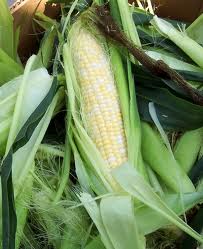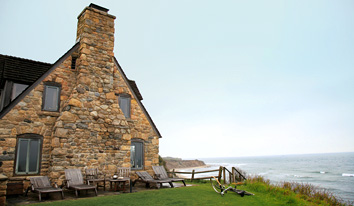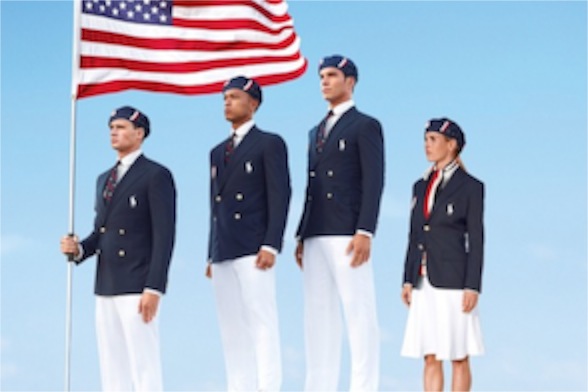World Economy
20/07/12 04:48
It is clear that we live in a society that participates in a world-wide economy. There was a time when buying locally produced goods and food was the only option. The costs of shipping items from distant locations made items produced locally more attractive. But the world has changed. Mass produced and mass marketed items have lower prices. Clothing manufactured in China costs less than items made in the USA in most communities. Groceries that are shipped from far away places often have lower prices than those produced close to home. In our own small way, we experienced part of the changing economy over the past few days.
We took a couple of days to explore Central Missouri. We drove down to the Harry S. Truman Reservoir and then drove around the Lake of the Ozarks. The two near-by reservoirs have created a thriving tourist and recreation economy in the region. Some of the elements of this economy are familiar to us. Helicopters sit waiting fare-paying customers to take short rides to view the area. Billboards proclaim fudge and sweet shops and ice cream vendors. There are caves to explore and water slides, golf courses and barbecues, vacation home rentals and shows. I don’t think we have any parasailing in the hills, however. One company operating near the dam that creates the Lake of the Ozarks touts a 600’ tow line for those who want to rid above the water towed by a speedboat.
 Along the way we stopped twice for groceries. We made a quick run into a local Walmart for eggs, juice and a couple of other items. It isn’t our preferred way of shopping, but Walmart stores are in a lot of locations, easily identifiable and have consistent merchandise. We can find the items we want and get back to our trip quickly. Our second stop made for a more pleasant experience. We stopped at an Amish food stand set up near a rural road. There we marveled at stacks of giant tomatoes, fresh cucumbers, sweet corn, cantaloupes, watermelons, berries and peaches. We purchased a few ears of corn, a basket of blackberries, a couple of tomatoes and a few peaches. The cost was higher than we would have paid for the same items in a supermarket. The vendor accepted cash only – no credit cards. But the food was delicious and the experience delightful. We would have missed some of the local flavor if we had decided to just drive by the produce stands and purchase our food from supermarkets.
Along the way we stopped twice for groceries. We made a quick run into a local Walmart for eggs, juice and a couple of other items. It isn’t our preferred way of shopping, but Walmart stores are in a lot of locations, easily identifiable and have consistent merchandise. We can find the items we want and get back to our trip quickly. Our second stop made for a more pleasant experience. We stopped at an Amish food stand set up near a rural road. There we marveled at stacks of giant tomatoes, fresh cucumbers, sweet corn, cantaloupes, watermelons, berries and peaches. We purchased a few ears of corn, a basket of blackberries, a couple of tomatoes and a few peaches. The cost was higher than we would have paid for the same items in a supermarket. The vendor accepted cash only – no credit cards. But the food was delicious and the experience delightful. We would have missed some of the local flavor if we had decided to just drive by the produce stands and purchase our food from supermarkets.
We like to buy local food when we travel. Tasting regional variations in food is part of the joy of traveling. Were we to eat only at franchised restaurants, the food would be the same from place to place. That just isn’t our style. We like to sense the differences when we are away from home. Food is a great way to learn about a place. We’ve never succeeded in growing cantaloupes in our garden and I have never produced a tomato the size of the ones we bought. The flavor was excellent.
Even purchasing things from small, local vendors does not remove us from the wider economy. We noticed that the Amish market was selling apples that had been trucked in from Washington. At another stop, I purchased a jar of what I thought was a local barbecue sauce. It turned out that the sauce was from Texas. Our food travels more than we do. I have read that the average American could save more fuel by making careful food choices than by the choice of what kind of car to drive.
 One of the billboards we passed yesterday proclaimed that there was a Ralph Lauren Factory Store in Osage Beach. Nestled among other shops trying to attract tourists was a store offering the latest items from the famous fashion designer. We weren’t tempted to stop. We weren’t in the market for clothing. And we doubt that the designation “factory store” meant that the store was somehow closely connected with the place where the clothing was actually made. Osage Beach may have a Ralph Lauren factory store, but Missouri doesn’t have a Ralph Lauren factory. Had we stopped, we could have purchased clothing that was made in China, however.
One of the billboards we passed yesterday proclaimed that there was a Ralph Lauren Factory Store in Osage Beach. Nestled among other shops trying to attract tourists was a store offering the latest items from the famous fashion designer. We weren’t tempted to stop. We weren’t in the market for clothing. And we doubt that the designation “factory store” meant that the store was somehow closely connected with the place where the clothing was actually made. Osage Beach may have a Ralph Lauren factory store, but Missouri doesn’t have a Ralph Lauren factory. Had we stopped, we could have purchased clothing that was made in China, however.
There is a bit of a stir over the Ralph Lauren-designed uniforms that will be worn by the athletes of the United States Olympic Team in London this summer. They were sewn in China. Senate Majority leader Harry Reid suggested that “They should take all the outfits, put them in a big pile and burn them and start all over,” in response to an ABC news report that the uniforms had “made in China” labels on them.
 The textile industry is struggling in the United States. It is booming in China. We live in a world economy. Our Team USA Olympic Athletes will be carrying the flag of our country, but they will be wearing uniforms sewn in China. The Xinhua News Agency in China responded to Senator Reid’s statements condemning what it called “narrow nationalism and ignorance.” It seems that there is always a little controversy surrounding the games that are supposed to build good will among the nations of the world.
The textile industry is struggling in the United States. It is booming in China. We live in a world economy. Our Team USA Olympic Athletes will be carrying the flag of our country, but they will be wearing uniforms sewn in China. The Xinhua News Agency in China responded to Senator Reid’s statements condemning what it called “narrow nationalism and ignorance.” It seems that there is always a little controversy surrounding the games that are supposed to build good will among the nations of the world.
Unlike the teams of many nations, team USA receives no government funding for its organization, training, uniforms or other expenses. All of the money for the team is raised privately. This means that the team needs to watch its expenses. And wearing uniforms sewn in China is less expensive than wearing ones sewn in the USA.
I’m sure that the decisions about Olympic team uniforms are intensely political and there are factors of which I am unaware. We live in a complex world with a complex economy. The presence of a “factory outlet” doesn’t mean that there is a nearby factory. A food stand featuring local produce may sell fruit that has been trucked more than a thousand miles. A team participating in an international competition participates also in an international economy.
We live in an amazing world.
The tomatoes, by the way, were delicious.
We took a couple of days to explore Central Missouri. We drove down to the Harry S. Truman Reservoir and then drove around the Lake of the Ozarks. The two near-by reservoirs have created a thriving tourist and recreation economy in the region. Some of the elements of this economy are familiar to us. Helicopters sit waiting fare-paying customers to take short rides to view the area. Billboards proclaim fudge and sweet shops and ice cream vendors. There are caves to explore and water slides, golf courses and barbecues, vacation home rentals and shows. I don’t think we have any parasailing in the hills, however. One company operating near the dam that creates the Lake of the Ozarks touts a 600’ tow line for those who want to rid above the water towed by a speedboat.

We like to buy local food when we travel. Tasting regional variations in food is part of the joy of traveling. Were we to eat only at franchised restaurants, the food would be the same from place to place. That just isn’t our style. We like to sense the differences when we are away from home. Food is a great way to learn about a place. We’ve never succeeded in growing cantaloupes in our garden and I have never produced a tomato the size of the ones we bought. The flavor was excellent.
Even purchasing things from small, local vendors does not remove us from the wider economy. We noticed that the Amish market was selling apples that had been trucked in from Washington. At another stop, I purchased a jar of what I thought was a local barbecue sauce. It turned out that the sauce was from Texas. Our food travels more than we do. I have read that the average American could save more fuel by making careful food choices than by the choice of what kind of car to drive.

There is a bit of a stir over the Ralph Lauren-designed uniforms that will be worn by the athletes of the United States Olympic Team in London this summer. They were sewn in China. Senate Majority leader Harry Reid suggested that “They should take all the outfits, put them in a big pile and burn them and start all over,” in response to an ABC news report that the uniforms had “made in China” labels on them.

Unlike the teams of many nations, team USA receives no government funding for its organization, training, uniforms or other expenses. All of the money for the team is raised privately. This means that the team needs to watch its expenses. And wearing uniforms sewn in China is less expensive than wearing ones sewn in the USA.
I’m sure that the decisions about Olympic team uniforms are intensely political and there are factors of which I am unaware. We live in a complex world with a complex economy. The presence of a “factory outlet” doesn’t mean that there is a nearby factory. A food stand featuring local produce may sell fruit that has been trucked more than a thousand miles. A team participating in an international competition participates also in an international economy.
We live in an amazing world.
The tomatoes, by the way, were delicious.